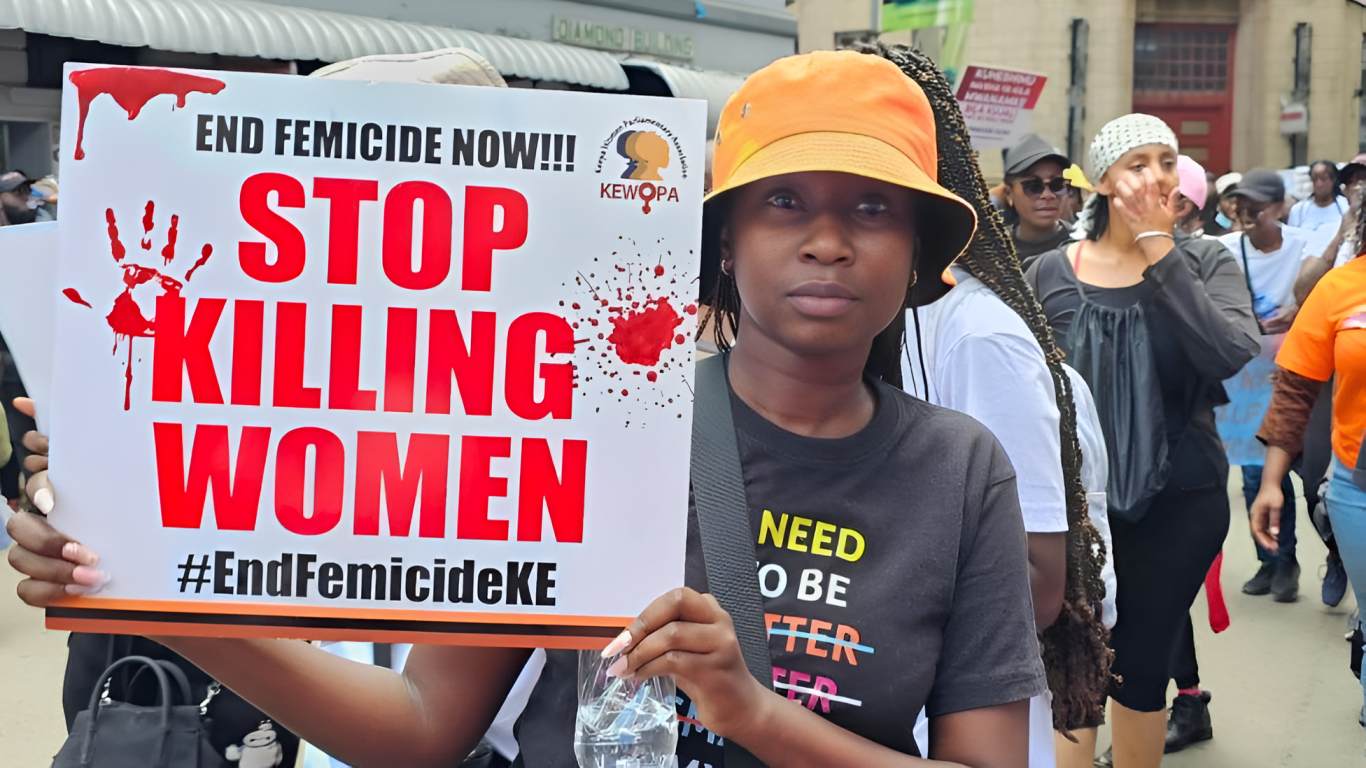State accused of failing Kenyan women

The findings paint a picture of a country where poor women are abandoned to their fate.
Thousands of women in Kenya continue to face violence and displacement as authorities look away, according to a new report by Amnesty International that exposes state neglect in responding to femicide and forced evictions.
The April report, titled The State of the World’s Human Rights, details disturbing cases of abuse, ranging from deadly attacks on women to the destruction of homes in informal settlements without notice or support.
The findings paint a picture of a country where poor women are abandoned to their fate, either killed by intimate partners or thrown into the streets with their children as bulldozers roll in.
The report highlights that the most recent evictions were carried out earlier this year by the Kenya Pipeline Company, targeting families living along the Embakasi wayleave.
Amnesty says this was not an isolated incident.
Last year, in March and April, more than 6,000 families were forcefully removed from their homes in Mathare and Mukuru Kwa Njenga as the government pushed ahead with demolitions during the peak of the rainy season.
Residents caught in the evictions described their experience to the rights organisation, saying they were given no warning or time to find alternative shelter.
"They didn’t give us any notice,” said Jane Atieno, a 39-year-old mother of four who lived in Mukuru Kwa Njenga. "They just came with bulldozers and armed police. My children were crying as we watched our house crush to the ground."
Officials defended the demolitions by claiming the houses were on riparian land and posed danger.
But community members insisted the operation was carried out in a harsh and unplanned manner.
"We’re not against safety," said Samuel Odhiambo, a community leader in Mathare.
"We’re against cruelty. They left people homeless in the middle of the rainy season with no plan."
The report also raises concerns about the government’s slow response to a court order.
In November last year, the High Court in Nairobi directed the state to assess the losses suffered by affected families and offer compensation in collaboration with residents.
However, by April, there had been no real progress in enforcing the order.
Alongside these evictions, women across the country are facing another crisis—rising cases of femicide.
Data from the Directorate of Criminal Investigations shows that by the end of last year, 170 women had been murdered simply because of their gender.
This number was nearly double the cases recorded in 2023 and five times the figure in 2016.
The growing number of killings has been met with urgent calls for action.
Amnesty International is now asking the government to fast-track efforts through the Task Force on Gender-Based Violence and the Ministry of Gender to develop strong and timely responses to these attacks.
The group also wants the government to take up proposals from movements like EndFemicideKE and HumanIsMyID, which have long advocated for state-led interventions to stop the violence.
Among the cases that drew national outrage were the deaths of Rita Waeni, a university student murdered in Nairobi, and Starlet Wahu, a social media influencer killed in a short-stay apartment.
Their brutal killings triggered protests across the country.
Hundreds of women marched in major towns holding placards with messages such as "Stop Killing Us" and "Justice for Our Sisters."
"We are tired of mourning," said Mwikali Muthoni, one of the protest organisers.
"We are not safe in our homes, we are not safe in the streets and the government is doing nothing. We want justice and protection."
